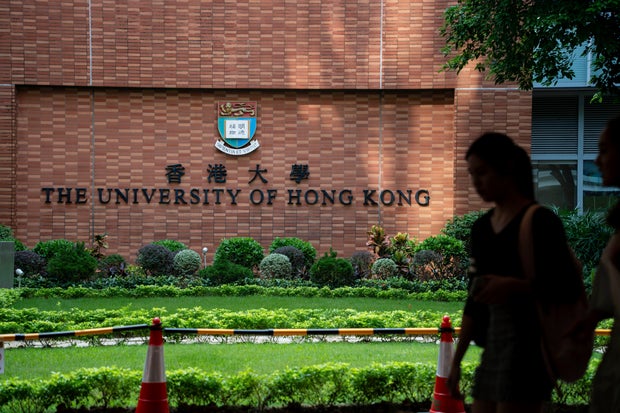AI-generated porn scandal rocks University of Hong Kong after law student allegedly created deepfakes of 20 women
Hong Kong’s privacy watchdog said Tuesday it has launched a criminal investigation into an AI-generated porn scandal at the city’s oldest university, after a student was accused of creating lewd images of his female classmates and teachers.
Three people alleged over the weekend that a University of Hong Kong (HKU) law student fabricated pornographic deepfakes of at least 20 women using artificial intelligence, in what is the first high-profile case of its kind in the Chinese financial hub.
The university sparked outrage over a perceived lenient punishment after it said Saturday it had only sent a warning letter to the student and demanded he apologize.
But Hong Kong’s Office of the Privacy Commissioner for Personal Data said Tuesday that disclosing someone else’s personal data without consent, and with an intent to cause harm, could be an offense.
The watchdog “has begun a criminal investigation into the incident and has no further comment at this stage,” it said, without mentioning the student.
The accusers said in a statement Saturday that Hong Kong law only criminalises the distribution of “intimate images,” including those created with AI, but not the generation of them.
There is no allegation so far that the student spread the deepfake images, and so “victims are unable to seek punishment… through Hong Kong’s criminal justice system”, they wrote.
The accusers said a friend discovered the images on the student’s laptop.
Experts warn the alleged use of AI in the scandal may be the tip of a “very large iceberg” surrounding non-consensual imagery.
“The HKU case shows clearly that anyone could be a perpetrator, no space is 100 percent safe,” Annie Chan, a former associate professor at Hong Kong’s Lingnan University, told AFP.
Women’s rights advocates said Hong Kong was “lagging behind” in terms of legal protections.
Vernon Yuen / AP
“Some people who seek our help feel wronged, because they never took those photos,” said Doris Chong, executive director at the Association Concerning Sexual Violence Against Women, referring to cases at the group’s crisis center. “The AI generations are so life-like that their circulation would be very upsetting.”
Asked about the case at a Tuesday press briefing, Hong Kong leader John Lee said most of the city’s laws “are applicable to activities on the internet.”
HKU said on Saturday it will review the case and take further action if appropriate.
AI-generated pornography has also made headlines in the U.S. A study found 6% of American teens have been targets of nude deepfake images that look like them.
Last month, Meta removed a number of ads promoting “nudify” apps — AI tools used to create sexually explicit deepfakes using images of real people — after a CBS News investigation found hundreds of such advertisements on its platforms.
In May, one of the largest websites dedicated to deepfake pornography announced that it shut down after a critical service provider withdrew its support, effectively halting the site’s operations.






